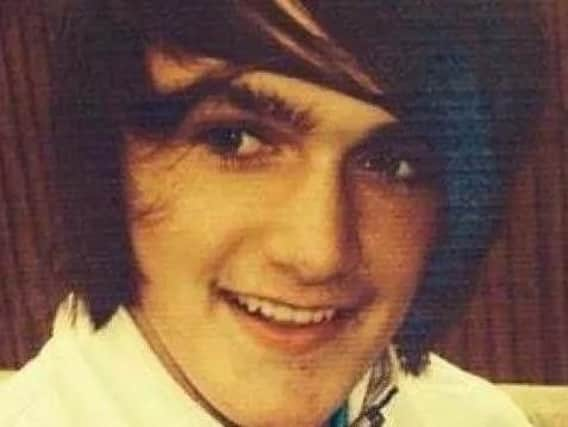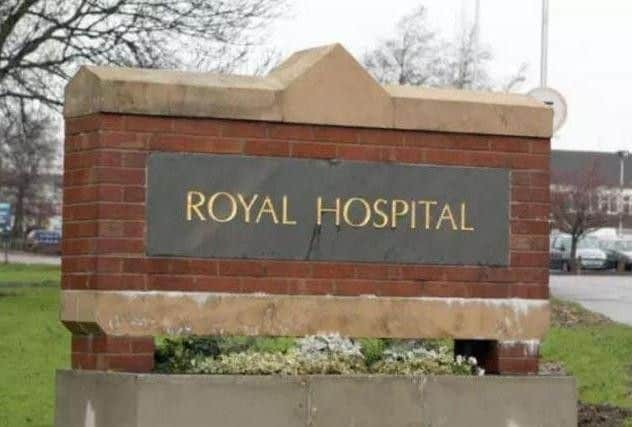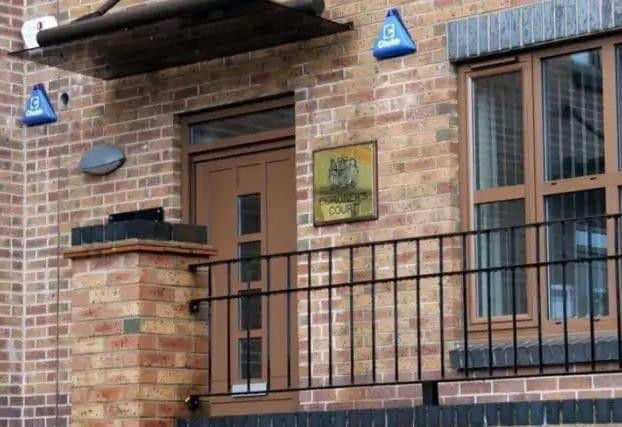Derbyshire family continues fight to 'find answers' after teen's meningitis death


Callum Blade Hubbard, of Quarry Road, Apperknowle, died aged 14 in 2014 - nearly three months after undergoing an ear operation at Chesterfield Royal Hospital.
Following Callum's death, the hospital gave his parents compensation and sent them a letter stating that the young footballer 'would have made a full recovery' if medics had not stopped intravenous antibiotics after the surgery.
Advertisement
Hide AdAdvertisement
Hide AdBut at Callum's inquest last year, Derbyshire's senior coroner Dr Robert Hunter concluded that the Dronfield Henry Fanshawe School pupil died from meningitis contracted after the ear operation, which he described as a 'necessary surgical procedure', and said nobody at the hospital was responsible for the tragedy.


Earlier this month, Callum's family went to the High Court asking for a fresh inquest into his death.
They were unsuccessful - but have vowed to carry on their fight.
Following the judgement, Callum's family said: "We are extremely disappointed by the court’s decision not to allow us to proceed with our judicial review of the coroner's conclusion relating to the death of our beloved son Callum.
Advertisement
Hide AdAdvertisement
Hide Ad"We will be discussing with our legal team the next steps in our fight to find answers about the care he received before his death.


"It cannot be right that Chesterfield Royal Hospital admitted causation of Callum's death as well as failings in his care but his death certificate says something completely different."
What was heard at Callum's inquest?
Callum's inquest, which took place at Chesterfield coroners' court last year, heard he attended Chesterfield Royal Hospital on November 17 2013 with ear pain, neck stiffness, headaches and nausea.
Doctors diagnosed him with meningitis and treated him with intravenous antibiotics - but his diagnosis was later changed to an ear infection.


Advertisement
Hide AdAdvertisement
Hide AdCallum came under the care of Dr Katie Midwinter, a consultant ear, nose and throat surgeon at Chesterfield Royal Hospital, on November 18 2013.
She carried out an operation in his left ear and discontinued his antibiotics and he was discharged from the Calow hospital the following day.
However, Callum became increasingly unwell and was re-admitted to hospital on November 22 2013.
He was diagnosed with meningitis and rushed to Sheffield Children's Hospital where he underwent a brain operation.
Advertisement
Hide AdAdvertisement
Hide AdAfter almost three months, Callum never regained consciousness.
His condition deteriorated and he sadly died on February 8 2014.
During the inquest, Dr Hunter ruled Dr Midwinter made an 'appropriate' decision to discontinue antibiotics after the ear operation.
He concluded: "Callum Blade Hubbard died from a recognised complication of a necessary surgical procedure."
Advertisement
Hide AdAdvertisement
Hide AdIn the letter sent to Callum's family after he died, Chesterfield Royal Hospital stated: "It is accepted with very great regret for the outcome that on the balance of probabilities, Callum would have made a full recovery if the IV antibiotics had continued on November 18 2013 for the appropriate duration of the bacterial meningitis, typically seven to 14 days."
Hospital says money 'no compensation'
Following Callum's family's High Court bid this week, coroner Dr Hunter said he had no further comment to make.
A spokesperson for Chesterfield Royal Hospital said: "Our sincere condolences and sympathies remain with Callum’s parents and his family.
"We know that losing Callum in such tragic circumstances remains extremely distressing for all of them.
Advertisement
Hide AdAdvertisement
Hide Ad"We also appreciate that the clinical settlement of their claim in 2017 is no compensation for their continued anguish.
"We have always been open about our internal investigation and its findings.
"Learning from his death has improved how we care for children with suspected meningitis, the way we look after young people admitted for surgical emergencies and how we advise parents and carers over the phone.
"We know this will never change this family's circumstances, although we hope it offers them some small comfort as they continue to cope with their loss.
Advertisement
Hide AdAdvertisement
Hide Ad"After the coroner's verdict we reflected on its findings and conclusions.
"Our focus has always been to learn from what happened to Callum and over the last five years we have taken every opportunity to do that and to share that learning widely."
Callum adored Sheffield United and his middle name was inspired by the Blades.
His parents described him as 'wonderful and amazing' boy who is sorely missed.
NHS factfile on meningitis
Advertisement
Hide AdAdvertisement
Hide AdMeningitis is an infection of the protective membranes which surround the brain and spinal cord.
It can affect anyone but is most common in babies, young children, teenagers and young adults.
Meningitis can be very serious if not treated quickly. It can cause life-threatening blood poisoning (septicaemia) and result in permanent damage to the brain or nerves.
A number of vaccinations are available which offer some protection against meningitis.
Symptoms of meningitis develop suddenly and can include:
• a high temperature (fever) of 38C (100.4F) or above
• being sick
• a headache
Advertisement
Hide AdAdvertisement
Hide Ad• a blotchy rash which doesn’t fade when a glass is rolled over it (this won’t always develop)
• a stiff neck
• a dislike of bright lights
• drowsiness or unresponsiveness
• seizures (fits)
These symptoms can appear in any order and some may not appear.
You should get medical advice as soon as possible if you’re concerned that you or your child could have meningitis.